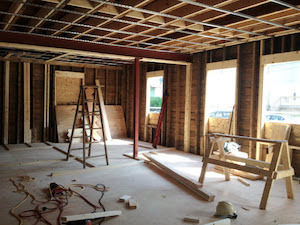Developers
Rhode Island needs more affordable homes! According to Projecting Future Housing Needs Report, HWRI projects a need of more than 34,000 new homes by 2025, most of these as multifamily properties due to a growing need among smaller household types.
If you are you a developer who is interested in learning more about affordable homes, we encourage you to look at our data specific to each Rhode Island region or municipality. Each municipality has a comprehensive plan that includes insights into what kind of housing it needs and where it is most appropriate. Municipal planning departments welcome working with developers in the earliest stages of planning.
As the state's primary source of funding for affordable homes, Rhode Island Housing offers an array of programs and services for Builders & Developers.
In seeking to encourage development in patterns that are consistent with its character and geography, Rhode Island is one of a very few states with statewide planning laws. These laws help to enhance the quality of life throughout our state by taking advantage of our existing public infrastructure and maintaining our open spaces as much as possible.
As a builder, developer and owner of suburban rental property, I consider HousingWorks RI the definitive source in our state for planning purposes, as do the municipalities with which I work.
- Dave Caldwell, Caldwell & Johnson, Inc., North Kingstown, RI
Land Use 2025
Outlined in the Rhode Island Land Use 2025, future plans for the state's growth seeks to make use of our historic villages and connectivity to jobs in all our communities. Included in Land Use 2025 is the acknowledgment of Rhode Island's need for more affordable homes as well as the barrier that some local regulations in achieving the densities needed to make homes more affordable.
Low and Moderate Income Housing Act
 |
Given the state's dire need for long-term affordable homes, in 1991, the state passed the Low and Moderate Income Housing Act, which sets a goal of ten percent of each municipality's year-round housing to be affordable for at least 30 years. Means to achieving this goal include the municipal plans mentioned above as well as a tool known as the comprehensive permit, which allows for a streamlined permitting process that generally allows for greater densities in exchange for the production of a percentage of long-term affordable homes. A number of developers and planners have used this tool collaboratively over the years in order to achieve the best outcomes for all. Other Rhode Island laws that pertain to development are:Learn more about the amount and type of housing that is needed in Rhode Island: Projecting Future Housing Needs Report |


Follow Us
Twitter
Facebook